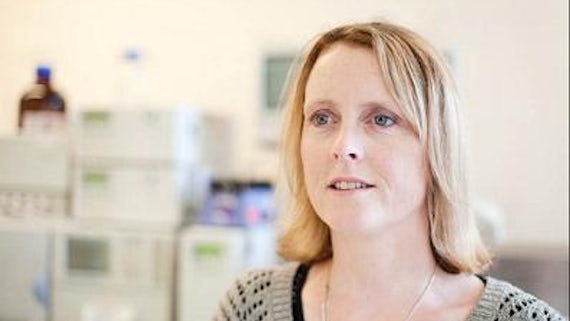Understanding lipids
1 Hydref 2013

Establishing a clearer understanding of the role lipids (or fats) play in the development of heart disease and dementia has received a major €3M funding boost through the University's first European Research Council Advanced Grant award for Life Sciences research.
Awarded to Professor Valerie O'Donnell's Lipidomic Group based in the School of Medicine the funding will help the Group determine the total number and diversity of lipids in two types of blood cells that help us fight infection and prevent bleeding.
Lipids (or fats) are molecules the body uses to regulate normal processes including blood clotting, fighting infection and development. In diseases such as heart disease, cancer and dementia, lipids are not regulated as normal. While many lipids are known, cells are likely have thousands more that remain to be discovered.
"We really do not know just how many unique lipids our cells contain and how these change during development and disease," according to Professor O'Donnell, who leads the research.
"We hope to find new families of lipids that have never been seen before. We will then study samples from humans who are genetically predisposed to developing cardiovascular disease or dementia with the aim of discovering new lipids that are involved in the disease processes themselves," she adds.
The research will be carried out in close collaboration with colleagues in Cardiff University's Schools of Computer Science and Informatics, Chemistry, Psychology and Medicine and University College London, King's College London and University of Colorado, Denver.
Professor O'Donnell adds: "This grant will be transformational for my Cardiff research group. For a number of years, we have specialised in the discovery of new lipids made by immune cells.
"This new grant will open up new avenues of research through allowing us to develop our approaches in new and exciting ways, and is multidisciplinary, involving chemists, bioinformaticians, computer scientists, psychologists and immunologists."
European Commissioner for Research, Innovation and Science, Máire Geoghegan-Quinn said: "The ERC funds researchers who are at the top of their game, and we need this talent in Europe. Their creativity and hard work creates knowledge that is valuable in itself, but that often also has a positive impact on our society and economy". This current round had a funding rate of 11.8%.
"That is why the ERC budget will receive a major funding boost under Horizon 2020."